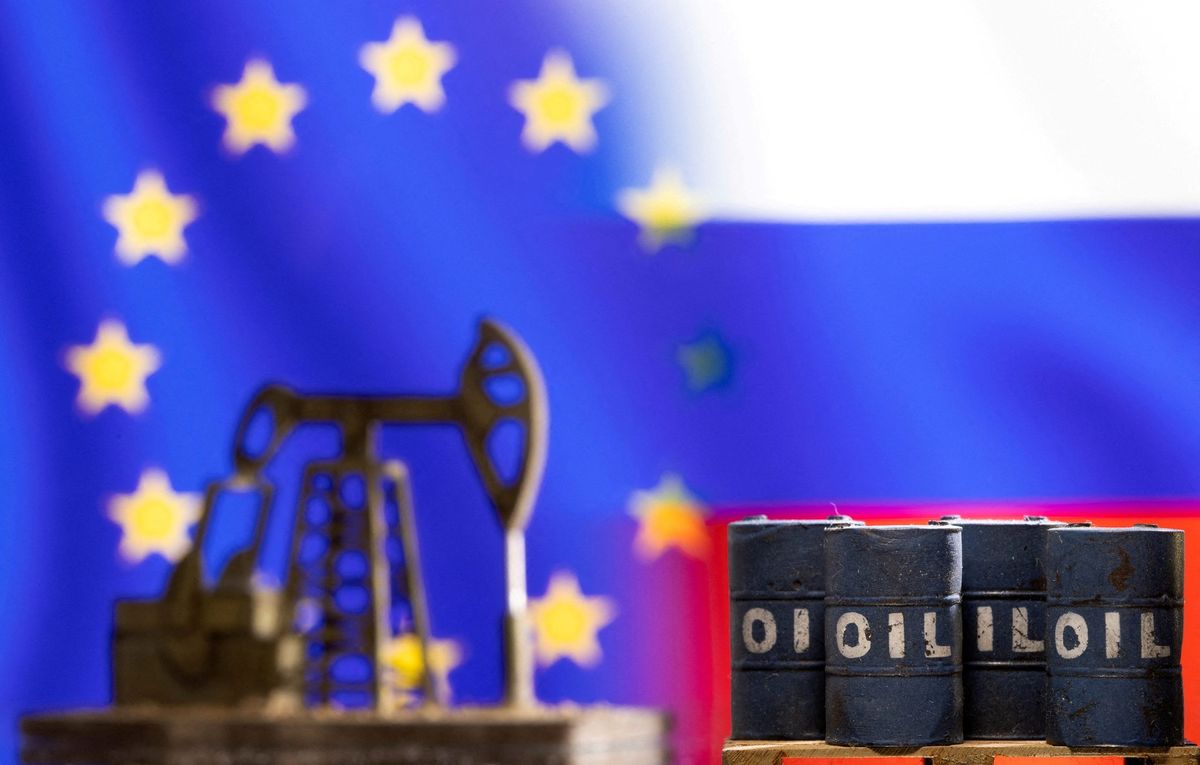The EU has reached a deal on its Russian oil embargo

A few minutes every morning is all you need.
Stay up to date on the world's Headlines and Human Stories. It's fun, it's factual, it's fluff-free.
The EU has been working on an extensive embargo of Russian oil, which would be the sixth round of sanctions from the region against Russia. But Hungary has been holding up the vote in recent talks and arguing that no deal was in sight any time soon.
See, Hungary is a land-locked country which gets a lot of its oil from Russia. This means an embargo would probably raise energy prices for the country. But its prime minister, Viktor Orban, is also known for being somewhat friendly with Vladimir Putin, so some people are questioning whether or not Hungary’s opposition to the embargo was only because of its dependence on Russian oil – and not perhaps some other motivation.
The proposal agreed upon Monday bans Russian oil imported by sea and allows a temporary exemption for pipeline supplies. Hungary also received guarantees from EU leaders that it would be able to receive replacement supplies if the pipelines were disrupted, according to people familiar with the talks.
Key comments:
Throughout discussions, Hungarian Prime Minister Viktor Orban said that an oil embargo would be like an “atomic bomb” for Hungary’s economy and that there would be “no agreement at all.” He later said that exempting oil arriving by pipeline was “a good approach” and “is not bad,” requesting further assurances that his country would be able to get Russian oil from other sources should an “accident” occur with the pipeline.
“I have not too high expectations that we are going to solve it in the next 48 hours,” said European Commission President Ursula von der Leyen, as she arrived at a summit Monday afternoon. “My call is very clearly on the member states. The key to success was and is solidarity with Ukraine and unity of the European Union,” she said.
“This immediately covers more than 2/3 of oil imports from Russia, cutting a huge source of financing for its war machine,” tweeted European Council President Charles Michel on Monday. “Maximum pressure on Russia to end the war.”




Comments ()